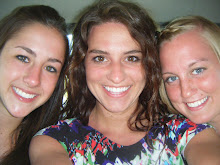
I started reading Two Old Women by Velma Wallis for my Native American literature class. It had never crossed my mind that the book might be appropriate for kids until my professor mentioned that it was actually written for children. There are a handful of pictures sprinkled throughout the 140 pages, and the the text is relatively large for an adult novel. Although the subject may be somewhat obscure for children, the themes running throughout are appropriate for all ages. As it mentions on the cover of the book, Two Old Women is a tale of "betrayal, courage and survival," all of which are accessible ideas for even young kids.
I was really intrigued from this story from the very beginning. Velma Wallis mentions in the introduction that it is a tale that had been passed down through time in her community; her mother had told it to her and she is forwarding it to her readers. Although it was dense with survival techniques and descriptions of the way of life on the land, I particularly enjoyed the communicative exchanges in the book. The Alaskan tribe in this book had been cultured to talk to each other singularly about events affecting their daily survival. There is a point in the middle of the book when the two women open up to each other under the guise of survival; however, they really open up the lines of communication on an emotional, affective level. Just as a reader, I felt an intense release at this point. I cannot imagine how the women felt after being bottled up for so long!
To me, Two Old Women is a replacement for Hatchet or Brian's Winter in the classroom setting. (Even though I did love both of those books when I was younger!) This has a similar facade of survival and strength. However, it simultaneously conveys messages of culture, pride, and friendship that might be lacking in the other books. I think it is intriguing, too, that this story has great importance in the Gwich'in culture. It would be fun for students to hear a traditional tale from this perspective. It is definitely a book around which a theme unit could be born.

No comments:
Post a Comment